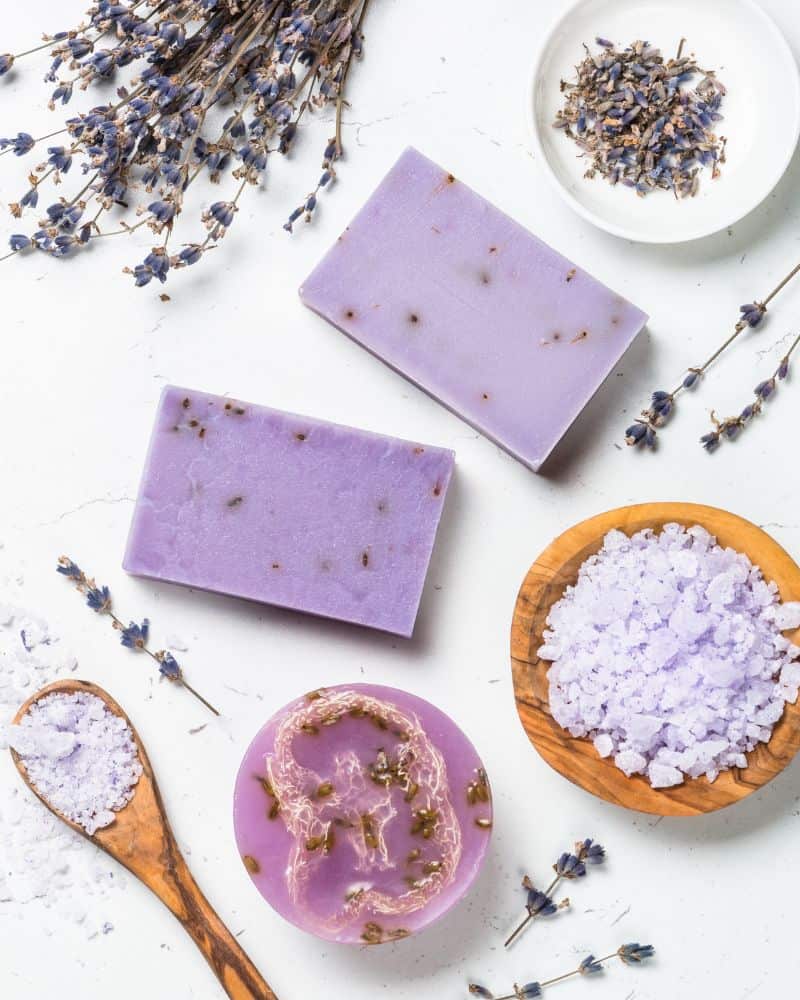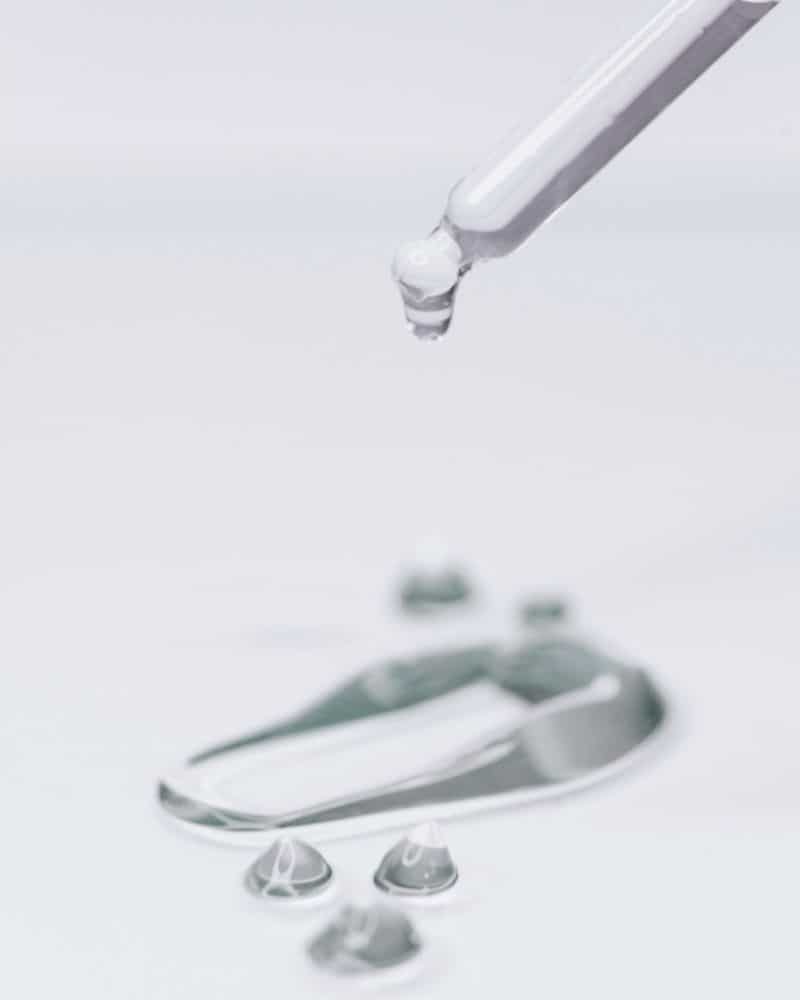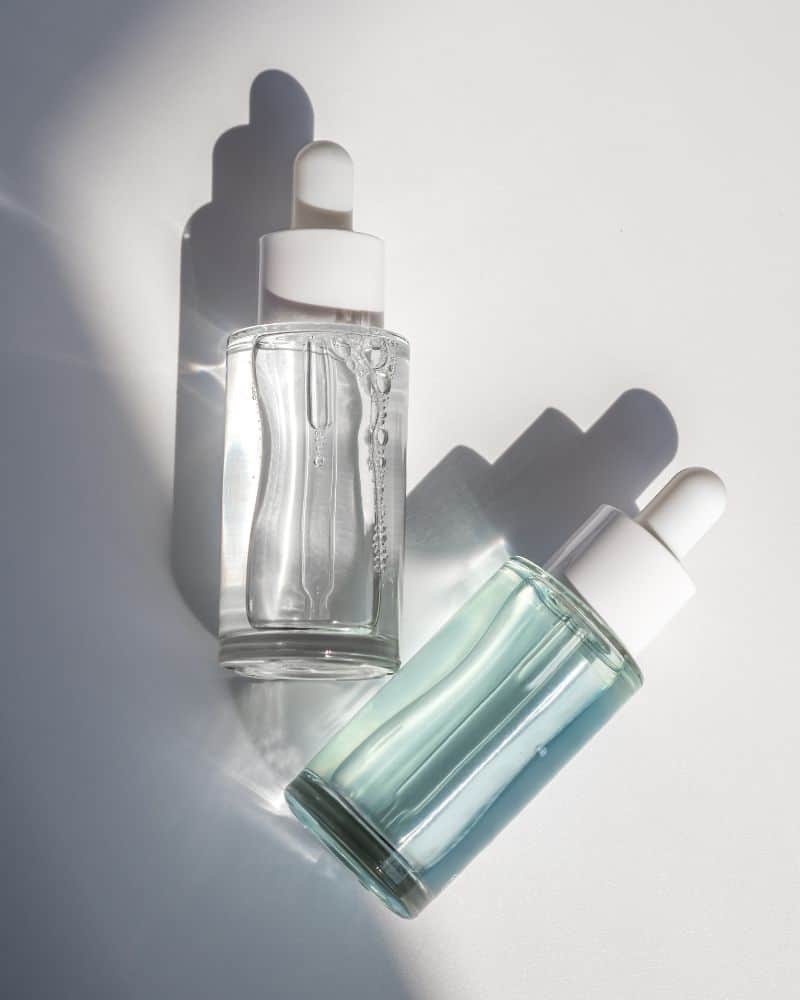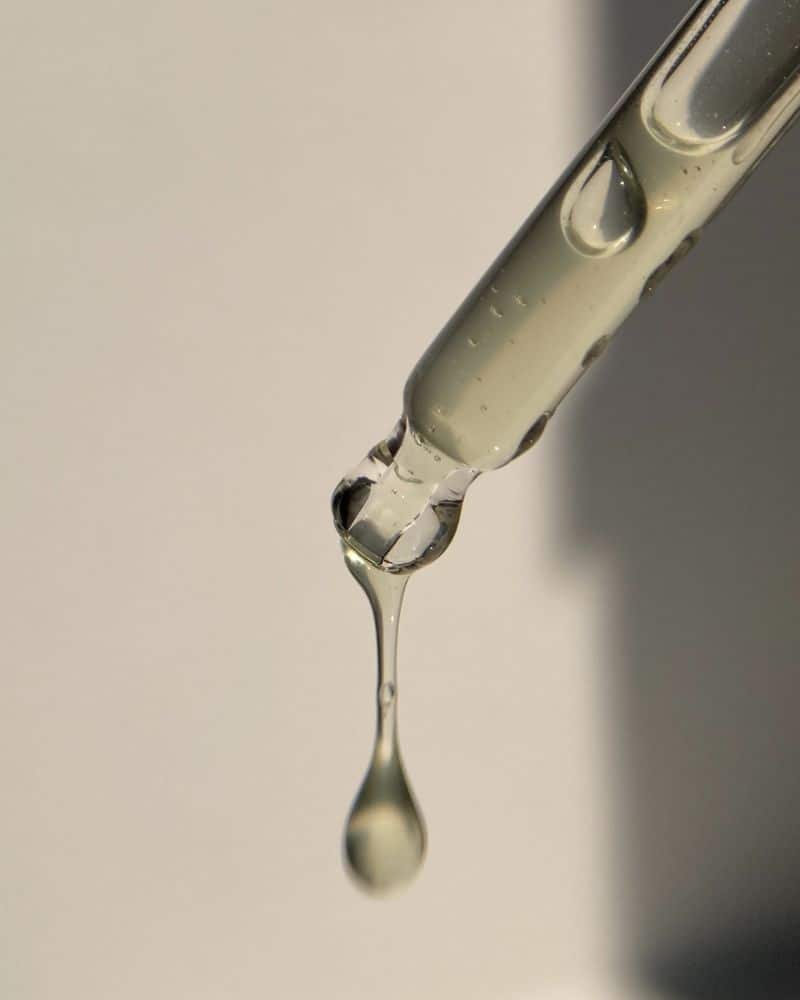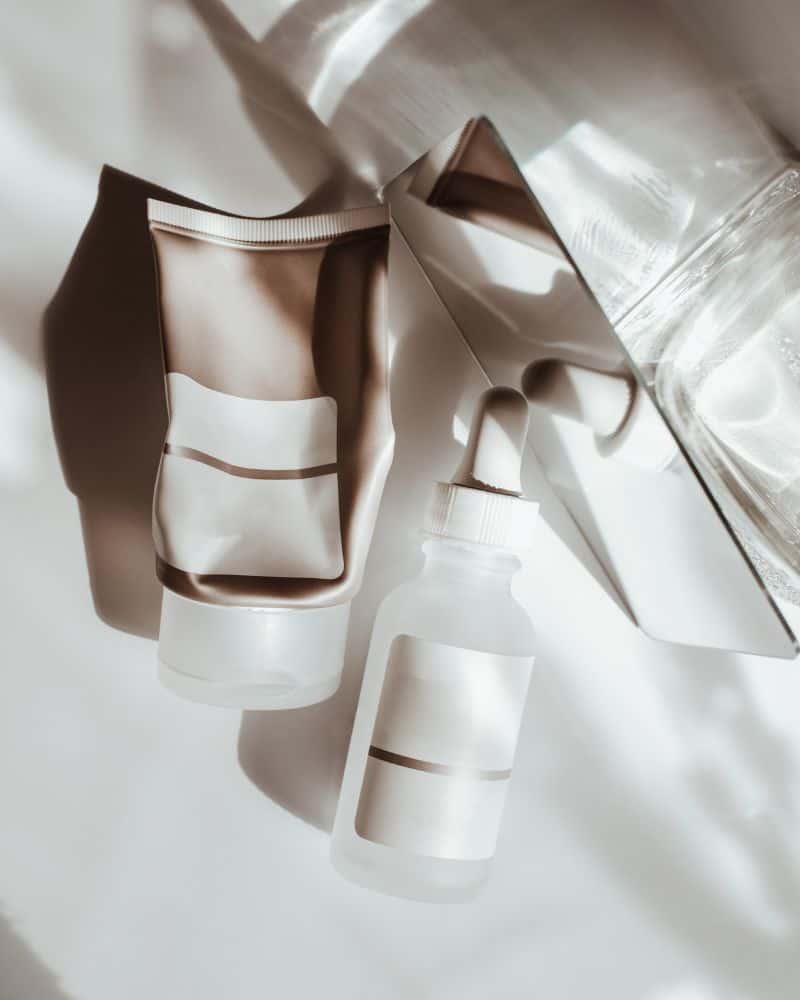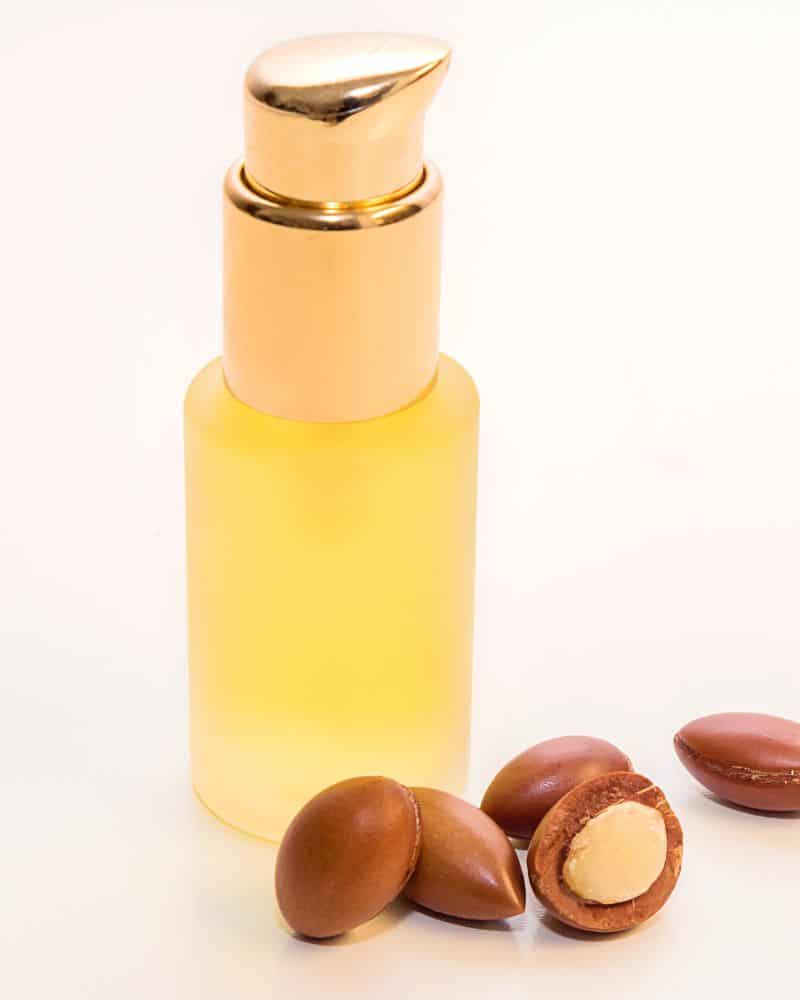Can You Use Rosehip Oil With Retinol or Tretinoin?
This post may contain affiliate links.

Rosehip oil is one of nature’s bestkept secrets when it comes to skin and beauty care. Extracted from the small fruits of wild rose bushes, this precious essential oil has been used for centuries by traditional civilizations due its healing and regenerative powers. Rich in antioxidants, loaded with vitamins A and C, omega fatty acids and Vitamin E, Rosehip Oil can help improve the overall health and appearance of your complexion. But how does it react with other active products such as retinol or tretinoin? Since it’s become such a popular facial oil, many people wonder can you use rosehip oil with retinol or tretinoin? We’ll take a look at whether its safe to use rosehip oil and retinol together and how to layer them correctly.
About Tretinoin & Retinol
Tretinoin is a prescription-only form of Vitamin A that speeds up skin cell turnover, making it excellent for anything from acne to wrinkles. It belongs to a class of molecules known as retinoids, which is an umbrella term for all Vitamin A compounds and derivatives like retinol or adapalene.
Tretinoin is known as a do-it-all product as it can treat clogged pores, acne, oily skin, acne scars, hyperpigmentation and signs of aging like fine lines and wrinkles. It also stimulates collagen and production. Because of it’s multitude of benefits, tretinoin is hailed as the gold standard for anti-aging and acne.
Tretinoin is one of the strongest and most effective retinoids on the market. However, it can also be one of the most irritating, which is why it’s prescription only. Tretinoin is a powerful exfoliator that can cause redness, irritation, flaking, dryness and peeling, especially when you first start using it.
Retinol is a type of vitamin A that speeds up cell turnover, which can help to fade hyperpigmentation, treat and prevent acne and more. This ingredient works by increasing collagen production, which can help to reduce the appearance of fine lines, wrinkles, and age spots.
Retinol is a form of vitamin A that’s found in many skincare products. Most dermatologists agree that retinol is one of the best ingredients you can use to take care of your skin no matter what your skin type or skin concerns are. Just like hyaluronic acid, retinol has a ton of amazing skin benefits.
Retinol is a type of retinoid, which are a family of Vitamin A compounds. Retinol is the OTC form of vitamin A, while stronger retinoids (like tretinoin or retin a) require a prescription. Basically, retinol is just a weaker version of tretinoin/retin-a.
Related post: Switching From Retinol to Tretinoin
About Rosehip Oil

Rosehip seed oil, often known as Rosehip oil, is extracted from rose bush seeds after the petals have fallen. Wild rose bushes grow in the Andes Mountains and produce the majority of Rosehip Oil, although it may also be found in a few other locations throughout the world.
Rosehip oil is unique in that it’s classified as a “dry oil” which means that it’s lighter and less greasy than other oils. You’ll instantly notice the difference between a dry oil like rosehip oil and non-dry oils. It moisturizes without leaving an oily layer or feel on the skin, which is one of the reasons why Rosehip oil is so popular among people with oily and acne-prone skin.
Rosehip oil is so popular in the skincare industry because it has so many amazing benefits thanks to its high concentration of vitamins, minerals and antioxidants. And it’s a great oil for those who do not like the feel or finish of traditional facial oils.
Related post: Can You Use Rosehip Oil On Your Lips?
Retinol Vs Tretinoin Vs Rosehip Oil
Retinol, Tretinoin and rosehip oil are all incredibly popular topical treatments that are often used to address a range of skincare concerns.
Tretinoin is a prescription medication most commonly used to treat acne and signs of aging, while rosehip oil is a popular facial oil that has a host of benefits for the skin. Retinol is just a weaker form of Tretinoin/Retin-A that is available OTC. When it comes to the active ingredients, tretinoin is derived from Vitamin A, while rosehip oil is a natural plant-based oil that is rich in Vitamin A (among many other things).
While they work differently and do very different things, tretinoin and rosehip seed oil do have some similarities. These similarities are mostly thanks to Vitamin A.
- Both tretinoin and rosehip oil can help to stimulate collagen production and reduce signs of aging like fine lines, wrinkles and sagging skin.
- Rosehip seed oil and tretionin can treat and prevent acne and help to fade acne scarring. They do so by speeding up cell turnover to prevent clogged pores/acne and to lighten dark spots.
- Both retinol and rosehip oil smooth skin texture by exfoliating the dead skin cells away.
Tretinoin and retinol are known for their ability to treat and prevent acne, smooth skin texture and diminish signs of aging. While rosehip oil shares these same benefits, it is not as strong as retinol or tretinoin and has more moisturizing, hydrating and antioxidant properties.
Related post: Retinol Vs Tretinoin
Can You Use Rosehip Oil With Retinol?

Since Rosehip oil contains Vitamin A, many people wonder if you can use rosehip oil and retinol together.
Yes, you can use rosehip oil and retinol together. Retinol is a form of Vitamin A so it can be beneficial to layer it with other products that contain vitamin A, like Rosehip oil. Although rosehip oil is rich in Vitamin A, it’s nowhere near as strong as retinol. Plus by using rosehip oil with retinol, you also get the hydrating, moisturizing and antioxdant benefits that rosehip seed oil offers. These can help reduce dryness and irritation that’s often associated with retinols.
Can You Use Rosehip Oil With Tretinoin?
With tretinoin being such a popular skincare product, especially now that teledermatology is becoming more prominent, you may be wondering can I use rosehip oil and tretinoin together?
Yes, you can use rosehip oil with tretinoin. Rosehip oil may help to soothe and moisturize skin that has become dry or irritated due to tretinoin use. The concentration of Vitamin A in the oil is not high enough to cause any issues. However, it is important to still use a moisturizer and don’t just rely on the rosehip oil.
Can You Use Rosehip Oil With Granactive Retinoid?
Granactive Retinoid is a new generation of retinoid that’s recently become popular in the skincare industry. It is a gentle, effective solution to target multiple signs of aging, including fine lines, wrinkles, and discolouration. It can also help to treat and prevent acne. It’s been shown to be ass effective as tretinoin, but without all the dryness and irritation.
Yes, you can use rosehip oil with Granactive Retinoid. Rosehip oil is a natural source of antioxidants and fatty acids which can help protect the skin from free radical damage, as well as help soothe and nourish the skin to prevent dryness and irritation.
Related post: Granactive Retinoid Vs Retinol
How to Use Tretinoin, Retinol & Granactive Retinoid With Rosehip Oil

If you’re wanting to introduce rosehip oil into your routine with retinol or tretinoin, there are several ways you can do so.
Use Rosehip Oil And Retinoids Separately
If you’re worried about potential irritation with layering rosehip oil on top of retinol, the best way to incorporate both into your routine is to use them at different times of day.
Since rosehip oil is a dry oil, it can be used in the morning and retinol/tretinoin should always be used at night. Separating these products in your routine is the best way to avoid any potential irritation especially if you have more sensitive or reactive skin.
Another way to use them separately is to use them on different days. Most people don’t use retinoids daily, so you can use rosehip oil on days that you don’t use retinol to give your skin a break and to keep it hydrated and moisturized.
Use Rosehip Oil And Retinoids Together
Using rosehip oil on top of retinol or tretinoin can also be beneficial. Since rosehip oil has such hydrating and soothing properties, it can help to reduce irritation that is often associated with retinol or tretinoin use.
So if you’re wanting to use them at the same time, always use your retinoid product first, followed by moisturizer and finally layer the rosehip oil on top.
Use Rosehip Oil And Retinoids In A Single Product
The easiest way to incorporate both of these incredible ingredients into your routine is to use a product with both retinol and rosehip seed oil. These two ingredients work together to provide the skin with antioxidants, hydration and anti-aging benefits. Using products that combine these ingredients will give you the best of both worlds – hydrated skin with visible anti-aging results.
The Urban Skin RX Reti-Glow Gentle Resurfacing Serum uses Bakuchiol (a gentle, retinol alternative) along with salicylic acid, vitamin e and rosehip oil to resurface and nourish skin. This serum is great for those with acne-prone and oily skin.
The Revolution Skincare Extra 0.5% Retinol Serum With Rosehip Seed Oil is another great option that’s a little more nourishing. Along with rosehip oil, it also has grapeseed oil and sweet almond oil. This one is better for normal to dry skin types.
Do You Use Rosehip Oil Before Or After Retinol Or Tretinoin?

Layering skincare is one of the biggest questions among skincare enthusiasts. So if you’re wondering if you should use rosehip oil or retinol first, I’ve created an easy guide to help you with layering retinoids with rosehip seed oil.
It’s important to remember that you should always use your retinoid product first, followed by a moisturizer and then the rosehip oil on top.
Here is how you can layer rosehip oil, moisturizer, and retinol/tretinoin on your skin:
- Cleanse your face and gently pat dry
- If possible, wait 20-30 minutes before applying the next step
- Apply your retinol or tretinoin
- Wait for 5-10 minutes.
- Apply moisturizer
- Apply rosehip seed oil
Alternatively, you can also apply moisturizer before retinol/tretinoin, but you should always use rosehip oil after your retinol/tretinoin.
Can You Use Retinol And Rosehip Oil Together FAQ’s
Can You Use The Ordinary Retinol & Rosehip Oil Together?
As two insanely popular (and affordable) skincare products, you may be wondering if you can use The Ordinary Retinols with their Rosehip oil. The answer, yes! You can absolutely use The Ordinary Retinols together with their Rosehip oil. They work well together and layer beautifully without any pilling or irritation.
Can I Use Rosehip Oil Everyday?
Yes, rosehip oil can be used every day, it can even be used 2x daily if necessary. Rosehip oil is very gentle and can be used on all skin types, including sensitive skin.
Is Rosehip Oil Safe With Retinol?
Yes, rosehip oil is safe to use with retinol. In fact, rosehip oil is a great facial oil to use with retinol and tretinoin because it has anti-inflammatory, antioxidant and moisturizing properties which help to reduce irritation and dryness associated with retinol and tretinoin. Layering them together can provide your skin with hydration, antioxidants and anti-aging benefits.
Can I Use Rosehip Oil Before Retinol?
No, you should always apply your retinoid product first, followed by a moisturizer and then the rosehip oil. You can also use a moisturizer before retinol/tretinoin, but you should always use rosehip oil after your retinol/tretinoin. This is because the oil keep the tretinoin from being fully absorbed by your skin, so you won’t get as much benefit from it.
Can You Put Oil On Top Of Retinol?
Yes, you can put oil on top of retinol. However, you should always apply your retinoid product first and wait for 5-10 minutes, apply moisturizer and then as the last step, use facial oil. This allows the retinol to be fully absorbed by your skin so you get the most benefit from it. It also prevents pilling which can happen if you apply oil on top of retinol without letting the products soak in fully.
Related post: How Long To Wait Before Applying Moisturizer On Top Of Tretinoin
Should I Use Retinol Or Rosehip Oil?
It depends on your skin type and what concerns you are trying to address. Retinol is extremely effective at reducing wrinkles, fine lines, improving uneven skin tone and treating acne. Rosehip oil is great for nourishing the skin, it has antioxidant properties that help to protect against free radical damage and helps to even out the skin tone.
Although Rosehip Oil is an incredible product and offers many benefits for the skin, it should really be used in conjunction with other actives like vitamin c, retinol, aha/bha, etc. Rosehip oil on its own won’t be as effective against hyperpigmentation, acne or signs of aging.
However, if your skin is extremely sensitive, rosehip oil can be a great alternative to retinol and tretinoin. Since it’s not as potent, it won’t cause as much irritation and dryness.
So, if you are looking for something gentler, rosehip oil can be a great choice. Otherwise, retinol is still the best option for anti-aging, acne and hyperpigmentation.
Can I Use Rosehip Oil Instead Of Retinol?
No, rosehip oil cannot be used as a replacement for retinol or tretinoin. Rosehip oil is good for nourishing the skin and providing antioxidants but it won’t be as effective at reducing wrinkles, fine lines, treating acne or hyperpigmentation. Retinol/tretinoin are more potent active ingredients that treat the skin on a much deeper level. But rosehip oil can be a great addition to any routine along with retinol or tretinoin.
Rosehip Oil And Tretinoin Wrap Up
Rosehip oil has become increasingly popular in skincare routines thanks to its host of benefits for the skin. And while it can be used alone for a nourishing boost of hydration and vitamins, many people wonder if they can also use rosehip oil with other products like retinol and tretinoin. The answer is yes! Combining these two powerful ingredients together can help reduce fine lines, dark spots or hyperpigmentation and treat and prevent acne. They can easily be combined in your skincare routine by using them at different times of day or layering them together.
